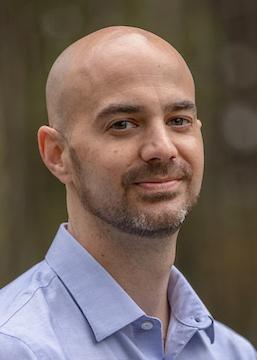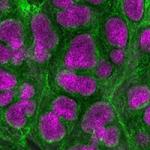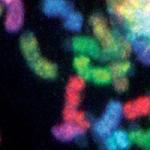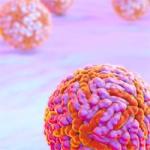
Ryan K. Dale, M.S.,Ph.D.
Senior Scientist
Bioinformatics and Scientific Programming Core
NICHD/DIR
Research Topics
NICHD's Bioinformatics and Scientific Programming Core (BSPC) collaborates with intramural investigators in NICHD across a wide range of biomedical research topics, including basic research – such as how cells modulate gene expression, how cells differentiate throughout development, or how particular mutations affect an organism – as well as more clinically-focused work such as identifying biomarkers for rare pediatric diseases or assessing potential therapies.
BSPC analyzes high-throughput -omics data of all kinds. We also build websites to integrate and visualize published data, develop new tools and algorithms, and build infrastructure to record, track, and reproduce computational environments to ensure long-term support of research software.
BSPC collaborates closely with researchers at all stages of the scientific process. We start with understanding the underlying biological questions to develop the optimal study design and analysis strategy. We then perform multiple iterations of analysis and compose them into reproducible workflows on high-performance compute systems and review each iteration with our collaborators to ensure the analysis addresses the biological questions. Finally, during manuscript preparation we write methods, make figures, ensure bioinformatics results are interpreted accurately, submit data to public repositories, and assist with revisions.
Additionally, BSPC trains and guides individuals at all career levels to become more fluent and self-sufficient in computational work, with the larger goal of boosting bioinformatics capacity across the institute.
Biography
Dr. Ryan Dale is a Senior Scientist at NICHD in the role of Scientific Information Officer for the institute and head of the Bioinformatics and Scientific Programming Core, providing highly collaborative bioinformatics support and advising on scientific IT support. Dr. Dale received his B.S. in Biology from The College of New Jersey, M.S. in Oceanography from the University of Delaware, and Ph.D. in Marine Biology and Biochemistry from the University of Delaware. At each step he learned, built, and applied computational tools for his research, developing broad experience across multiple disciplines. In 2009 he started at NIH as the bioinformatician for a group of 6 developmental biology labs in NIDDK. For eight years he led the bioinformatics work there, which focused on gene regulation throughout development in multiple model organisms. He also authored bioinformatics software tools that have been downloaded tens of thousands of times, and has been a regular contributor to many open source research software packages. In 2018, he founded the Bioinformatics and Scientific Programming Core at NICHD, and ever since has been been collaborating with dozens of NICHD labs on many topics spanning basic, translational, and clinical research, consulting with various other labs around NIH on bioinformatics, and training the next generation of bioinformaticians.
Selected Publications
- De Pace R, Ghosh S, Ryan VH, Sohn M, Jarnik M, Rezvan Sangsari P, Morgan NY, Dale RK, Ward ME, Bonifacino JS. Messenger RNA transport on lysosomal vesicles maintains axonal mitochondrial homeostasis and prevents axonal degeneration. Nat Neurosci. 2024;27(6):1087-1102.
- Chakraborty S, Kopitchinski N, Zuo Z, Eraso A, Awasthi P, Chari R, Mitra A, Tobias IC, Moorthy SD, Dale RK, Mitchell JA, Petros TJ, Rocha PP. Enhancer-promoter interactions can bypass CTCF-mediated boundaries and contribute to phenotypic robustness. Nat Genet. 2023;55(2):280-290.
- Thongdee N, Alaniz MM, Samatova E, Zhong A, Esnault C, Zhang H, Dale RK, Rodnina MV, Storz G. Modulation of protein activity by small RNA base pairing internal to coding sequences. Mol Cell. 2025;85(9):1824-1837.e7.
- Rhodes CT, Thompson JJ, Mitra A, Asokumar D, Lee DR, Lee DJ, Zhang Y, Jason E, Dale RK, Rocha PP, Petros TJ. An epigenome atlas of neural progenitors within the embryonic mouse forebrain. Nat Commun. 2022;13(1):4196.
- Grüning B, Dale R, Sjödin A, Chapman BA, Rowe J, Tomkins-Tinch CH, Valieris R, Köster J, Bioconda Team. Bioconda: sustainable and comprehensive software distribution for the life sciences. Nat Methods. 2018;15(7):475-476.
Related Scientific Focus Areas
This page was last updated on Wednesday, January 14, 2026




